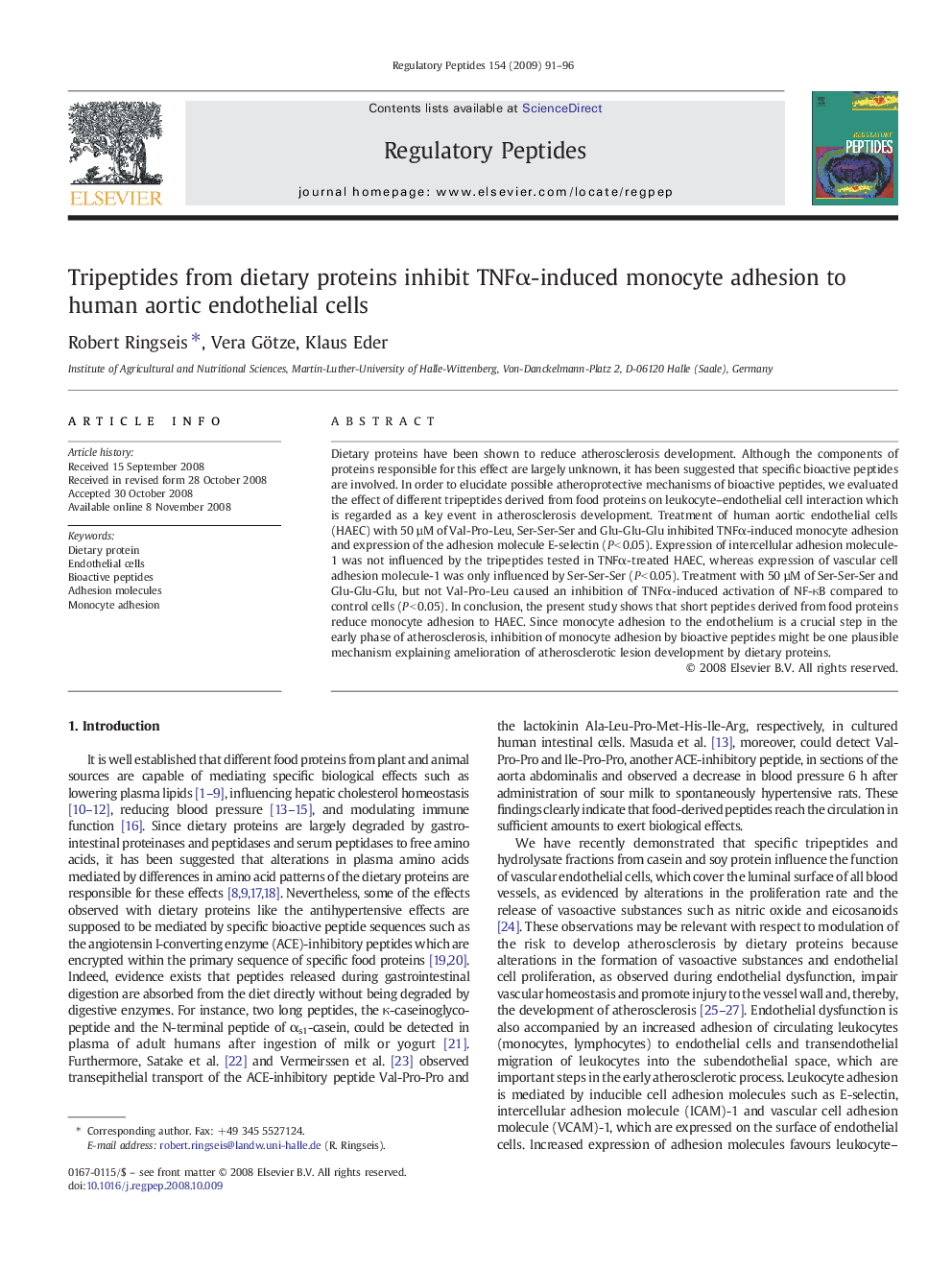| Article ID | Journal | Published Year | Pages | File Type |
|---|---|---|---|---|
| 2023004 | Regulatory Peptides | 2009 | 6 Pages |
Abstract
Dietary proteins have been shown to reduce atherosclerosis development. Although the components of proteins responsible for this effect are largely unknown, it has been suggested that specific bioactive peptides are involved. In order to elucidate possible atheroprotective mechanisms of bioactive peptides, we evaluated the effect of different tripeptides derived from food proteins on leukocyte-endothelial cell interaction which is regarded as a key event in atherosclerosis development. Treatment of human aortic endothelial cells (HAEC) with 50 µM of Val-Pro-Leu, Ser-Ser-Ser and Glu-Glu-Glu inhibited TNFα-induced monocyte adhesion and expression of the adhesion molecule E-selectin (P < 0.05). Expression of intercellular adhesion molecule-1 was not influenced by the tripeptides tested in TNFα-treated HAEC, whereas expression of vascular cell adhesion molecule-1 was only influenced by Ser-Ser-Ser (P < 0.05). Treatment with 50 µM of Ser-Ser-Ser and Glu-Glu-Glu, but not Val-Pro-Leu caused an inhibition of TNFα-induced activation of NF-κB compared to control cells (P < 0.05). In conclusion, the present study shows that short peptides derived from food proteins reduce monocyte adhesion to HAEC. Since monocyte adhesion to the endothelium is a crucial step in the early phase of atherosclerosis, inhibition of monocyte adhesion by bioactive peptides might be one plausible mechanism explaining amelioration of atherosclerotic lesion development by dietary proteins.
Related Topics
Life Sciences
Biochemistry, Genetics and Molecular Biology
Biochemistry
Authors
Robert Ringseis, Vera Götze, Klaus Eder,
